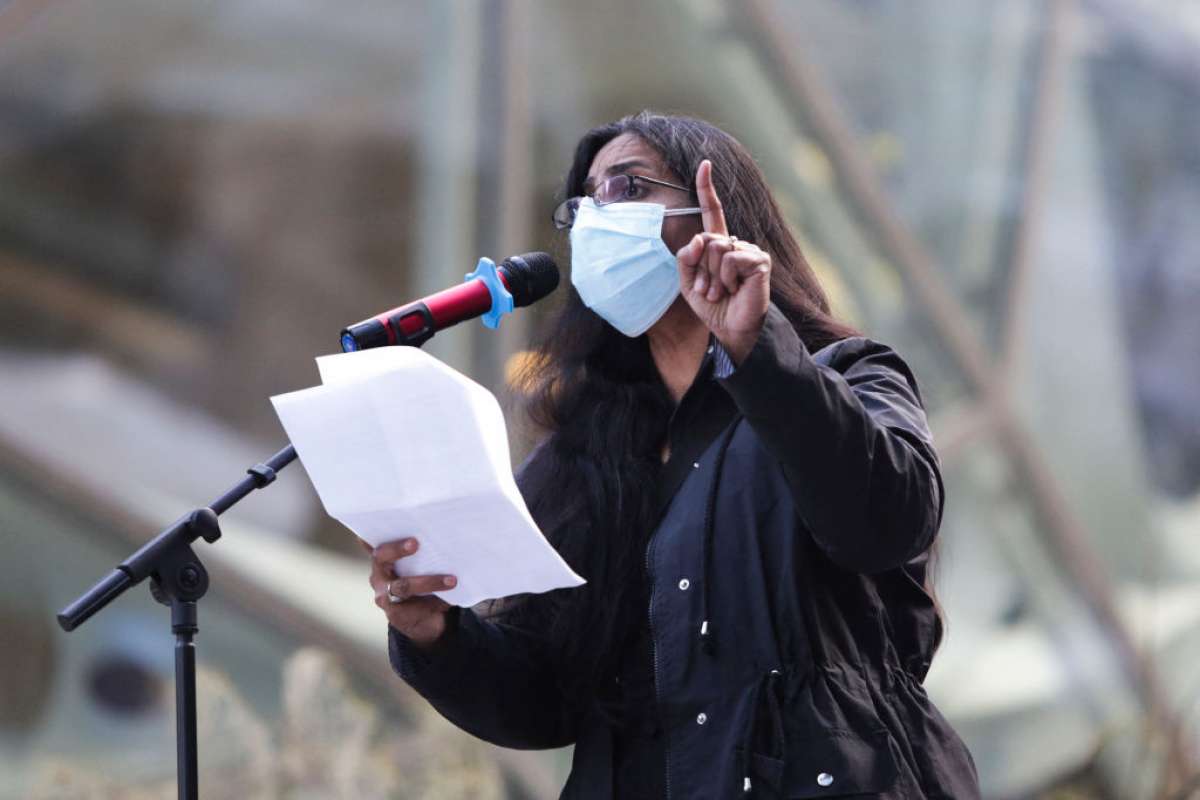Correction 12/7/2021: In our original statement, we stated that Sawant was reelected three times. She has in fact been reelected twice. Sawant has won three Seattle City Council elections in total, but the first was her 2013 election where she took office, rather than being reelected to it.
Tomorrow, Central Seattle voters will determine the results of a contentious special election to recall Councilmember Kshama Sawant from her position on the Seattle City Council. A Socialist Alternative party member, Sawant has represented District 3 – which includes Capitol Hill, Central District, South Lake Union, Madison Park, and Mount Baker – since 2013, being reelected two times in 2015 and 2019 respectively.
She faces accusations of unlawful misuse of her official position and city funds following her Tax Amazon ballot initiative, and activism in last year’s anti-police brutality protests.
Last summer, Mayor Jenny Durkan called on city council to investigate Sawant on similar accusations put forth by Ernie Lou and a group of District 3 residents who began the petition for her removal from office. The Recall Sawant campaign has propelled public support for the effort since. State law allows the recall of a politician and removal from office on multiple grounds. In King County, any registered voter may petition the removal before it is verified to meet the standards of the state by the King County Superior Court.
The petition to recall the councilmember was approved by King County Superior Court Judge Jim Rogers to appear in a special election ballot earlier this year. If recalled by voters, Sawant will be removed from office and a replacement will serve in her stead until the next election cycle in 2023. The order details the review allegations for legal and factual sufficiency, “not for their truth.”
The official list of her transgressions appearing on the ballot and authorized by Judge Rogers’ order authorizing the recall are that Sawant:
- “Misused City resources in promoting a ballot initiative ‘or other electioneering’ in Jan-Feb of 2020.”
- “Admit[in] hundreds of individuals at night into City Hall on or about the nights of June 9, 2020, when it was closed to the public because of COVID-19 and failing to follow the City’s COVID-19 precautions for the visitors…”
- “Led a protest march to Mayor Jenny Durkan’s private residence whose address is in the State confidential program…”
According to the court order, there is substantial evidence that Sawant’s office spent more than $2000 in promotion of her Tax Amazon campaign. On the allegation of opening City Hall, Rogers points to exhibitions provided by Lou that Sawant retweeted tweets from citizens and new organizations that she had a key and allowed protestors in. One reporter who followed the march corroborated the story.
In an interview with The Seattle Times, Sawant says she unintentionally misused city funds and paid a fine for the violation. The Times reports that Sawant claims she did “not violate any specific COVID order” and argues that the “brief” protest inside the city hall “meant everything in the world to some of those activists.” She also denies any involvement with the march to Durkan’s house.
Days before Judge Roger’s order, Sawant had filed an opposition to the petition, arguing that “each of the charges fails to facially establish factual and legal sufficiency.”
Although they were dismissed by Judge Rogers, accusations that Sawant misused her office to promote the creation of the Capitol Hill Organized Protest (CHOP) and the siege of Seattle Police’s East Precinct are still used to discredit her.
Sawant’s notoriety for her past demonstration efforts, such as in the Occupy Wall Street movement, along with footage of her at City Hall and Durkan’s house have made the charges against her hard to dispute for voters.
Opponents to Recall Sawant accuse the campaign of being bankrolled by billionaires and corporate money. Donors include real estate CEO George Petrie, who is known for his contributions to Republican campaigns and the state’s top donor to Donald Trump this year. Sawant, a socialist, is a staunch rival of much of the city’s upper echelon, with many of her legislative efforts directed towards corporate tax initiatives and redistribution of Seattle’s wealth.
Mayor Durkan is also questioned for her motives, as she is slated to step down from office in part due to the public’s backlash on her response to last year’s demonstrations and civil unrest. The two have clashed in the past and present — last June, Sawant asked Durkan to step down, shortly before Durkan’s letter to the Seattle Council President asking the very same of Sawant.
In spite of the challenges facing her, Sawant has gained steadfast support in the midst of the recall effort. A Kshama Solidarity Campaign has become a prominent voice in the dispute over Sawant’s position, building support to help keep the councilmember in office. She has gained particular support among voters of color, the working class, and younger voters due to her platform issues and advocacy. Each side of the dispute has raised over $1 million in donor funds.
The implications of a recall are far-reaching, particularly in contribution to backlash against Black Lives Matter and other leftist movements across the country that reached a fever pitch in 2020. The backlash has led to a sharp shift in Seattle’s political climate: Last month Seattle voters leaned away from progressive and left-leaning candidates in the general election. The recall, then, may very well divide the district she presides over.
The ballots for the recall vote, which were mailed out on Nov. 17, must be turned in by Dec. 7 to count towards either total. Ballots can be dropped at any valid ballot box until 8 p.m.
Author

Danny Barber is the Managing Editor of the Seattle Collegian and an English student at Seattle Central college. She enjoys writing creatively, drawing, baking, video games, and going on long-winded random internet research sessions. After Seattle Central, she plans on getting her Master’s in English and working on the editorial board of another paper someday.











Be First to Comment